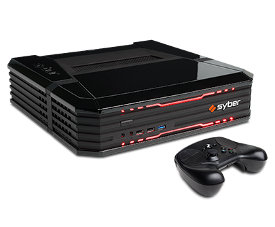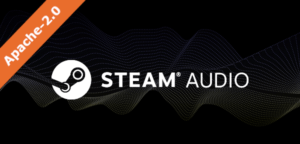The Steam machine is now publicly on sale as of last week, but it’s not off to the best start. A couple of weeks ago, Ars Technica compared the performance of games when running on Valve’s Linux based SteamOS and Windows 10. Six Valve games were tested on a single machine and results showed a 21 to 58 percent frame rate drop when running on Linux. While only six games were tested out of an entire collection of around 1,800 available titles, the games used Valve’s own Source engine, which is designed for Linux and SteamOS. Valve had previously stated that Steam games run faster on Linux, so it was expected that any of Valve’s own Source engine games would run smoothly.

There are a host of difficulties that need to be addressed. For example, most AAA developers use Direct 3D which is designed for Windows and Xbox, instead of the cross platform 2D and 3D graphics API, OpenGL. It’s not a matter one being superior to the other — they have similar functionality — but translations add complications to porting.
There is evidence that across different Linux systems and distributions results of game play may vary, with performance issues such as random loss of audio, poor and delayed rendering, lowered frame rates and more. But there is also evidence that games built specifically to utilize OpenGL and run on Linux might outperform their Windows counterparts. Back in August, Phoronix ran benchmarks comparing performance between Windows 10 and Ubuntu 15.04 on the open source Quake clone OpenArena, and found Linux coming out on top across a variety of graphics cards.
Another problem that’s plagued Linux games since the beginning is lack of driver support. Nvidia and AMD are the go-to graphics card providers and their drivers are deemed essential for high performance gaming. They are also closed source and generally not very open source friendly. It’s believed that we will see AMD deliver for Linux much sooner than others, thanks to the Vulkan API, a new game-centric OpenGL initiative based on AMD’s Mantle API, meant to compete with Microsoft’s DirectX12. Vulkan is based on AMD’s Mantle API.
As for NVIDIA: Games run well on Linux when using the company’s proprietary drivers, but that’s not always the case when using FOSS replacements. Developers for Noveau, the open source NVIDIA driver project, have been experiencing difficulty with the newest GTX 900 series graphics cards, as reported by Phoronix earlier this year in an article which quotes developer Ben Skeggs from a post on a developers’ site.
“Nvidia aren’t playing nice yet so there’s not much more that can be done at this point…,” Skeggs wrote. “…the ‘security’ restrictions…are excessive and go beyond what’d be necessary to protect the host from malicious firmware. This newer Nvidia hardware is VERY open-source unfriendly.”
The last and possibly greatest barrier stopping major companies from making successful ports is the belief that there still is no major Linux market. It was reported back in July that after the release of Windows 10 it took only one week for the number of Windows Steam users to overtake the number of Linux users. Steam’s Linux users — reportedly around one percent of its total base — are on the rise, but many developers don’t see enough potential growth to justify the expense of porting. Legendary game developer and Linux supporter John Carmack addressed this issue in 2013 when he tweeted, “Improving Wine for Linux gaming seems like a better plan than lobbying individual game developers for native ports.”
This doesn’t mean it’s the end of the world for Linux gaming. A rocky start for a new console is expected, with nearly every release of a new console launching with a few problems. Valve didn’t expect the Steam Machine to be an overnight success and is working to address issues. Linux games may not be immediately perfect, but they’re drastically improved from the early Doom ports of yesteryear. There are good open source Linux friendly graphics drivers in Intel graphics and Noveau, and the free but proprietary Unity game engine in August released an experimental version for Ubuntu, along with a platform-agnostic installer that works on most modern 64 bit Linux distros.
More games coming out for Linux shows there is a market for them, especially with the advent of the Steam Machine, which is certain to see rapid improvement. The Linux gaming community is eager for more playable AAA titles and a lot of effort is being made to increase the number of games available. According to the Linux Gaming Database, the number of titles currently available is 1,855, and within the next two months it’s expected to go above 2,000 out of a proposed 2,500.
Help keep FOSS Force strong. If you like this article, become a subscriber.
Hunter Banks has been a part of the Southern California Linux Expo (SCALE) Family for the past 13 years. When not writing about open source gaming, he’s working on creating his own games. Follow him on Twitter @SilvrChariot






As a side note, I think the new Valve controller has gotten rave reviews for enabling games designed for keyboard and mouse to be playable from your living room couch.
I think the first real obstacle for Steam OS consoles (“Steam Machines”) is that the purchase price is so high relative to mainstream consoles. Over the life of the device, the Steam Machine is cheaper because Steam games are much cheaper than traditional console games and Valve has no $5 monthly service equivalent to Xbox Gold or Playstation Plus. But most gaming shoppers don’t make their purchase decision based on a three or five year budget, they just look at the up-front cost to start playing their first game.
I think the first real obstacle for Steam OS itself is that a tech-savvy buyer that doesn’t care about freedom in their host operating system can just install Windows on the box for an extra $120 and get access to the complete Steam games library plus some other Windows-only games not available on Steam.
So Valve is left targeting freedom-focused gamers and regular buyers who aren’t able or willing to install Windows. But I suspect most of the former demographic is already on Steam and most of the latter demographic will gravitate towards Xbox and Playstation instead.
Just as a note: The article talks about open source graphics drivers like the Intel ones and the Nouveau project. However, it doesn’t mention the AMD open source drivers. AMD actually supports the open source driver project for AMD cards, and it’s much further ahead than Nouveau. Right now the most powerful open source driver powered graphics that you can attain for Linux come from the AMD open source drivers. However, it is possible to experience some compatibility issues with these drivers which are usually solved with the Intel drivers because software developers often expect you to switch to the AMD proprietary drivers when you experience them.
There is speculation that eventually AMD will drop the proprietary driver for Linux when the open source one meets certain expectations. It’s hard to say whether this is a real possibility or not.
@CFWhitman,
If you value freedom as a user and your privacy and so forth highly, then what you write will be significant and you’ll probably use AMD graphics cards on Linux with free software drivers. Your other option – probably your best option – is the newest Intel Iris Pro graphics, which have superb open source Linux drivers.
But if you read the articles on Phoronix and similar, the open source AMD drivers can’t match the proprietary AMD drivers on many games, and both lose badly to the proprietary Nvidia drivers on most Linux games.
Most kids and even most adults aren’t going to care about the freedom aspects, and they’ll just get the Nvidia cards.
I have two PCs at home running Linux with AMD cards using the open source radeon driver, by the way.
The worst part is that if you value privacy and freedom you can’t run a modern Intel based system at all.
Intel’s giant proprietary blob in your BIOS/UEFI sees to that. Every Intel based system is running an entirely independent, proprietary OS and a separate CPU with full access to your system and all of its memory contents. It can even communicate on networks outside your knowledge or control, going to so far as to be able to spoof its own mac address and appear as an entirely separate machine. You can’t control it, disable it, or change it.
https://en.wikipedia.org/wiki/Intel_AMT_versions
@Mike,
It’s likely something similar exists on most modern computing hardware and just isn’t publicly documented.
But security and privacy and freedom can be won in layers, right? What we don’t want to do is say, “Well, the BIOS is proprietary and AMT is hidden so I might as well run Windows.” On the other hand, as much as I agree with and donate to support the FSF I don’t think Richard Stallman’s tactic of using effectively antique hardware to avoid this problem is reasonable either.
“The last and possibly greatest barrier stopping major companies from making successful ports is the belief that there still is no major Linux market. ”
Catch 22
How can there be a successful market, without Linux Games? Without a market, who will go shopping for them?
Loki games was a good start, but they went out of business. Then you have the issue of not everyone has the same taste in games. Steam thinks they solved that, with its own platform. (personally, I don’t think so)
It is similar to the this is the year of the Linux Desktop argument. How is it the year, without preinstalls?
@Mike S.
There really are no good solutions at the moment. ARM is somewhat better than Intel because you don’t have all the bloated proprietary stuff underlying literally everything. They have their own issues, especially with regards to proprietary video systems primarily.
The problem with things like Intel’s AMT is that being at a layer beneath the OS and CPU, it can undercut and circumvent every single bit of freedom FOSS can provide. That is bad…very bad.
I agree, using ancient hardware is no real solution.
What we need are a handful of manufacturers committed to FOSS principles at the hardware level. We need systems using completely open designs that can be verified and also shared freely.
I had a lot of hope for the Librem laptop from Purism and was an early backer. After it became obvious their efforts to free the BIOS/UEFI were unlikely to work, I got a refund.
@Mike,
Good points.
I was disappointed by the Librem laptop too, though I didn’t have enough budget room to order one when I thought it was genuinely free.
My hope – which is probably foolish optimism – is that as we get more people freedom and privacy at any level, it will increase investment by individuals and companies at that level and at surrounding levels.
So even if Intel’s AMT completely bypasses all of the freedom and privacy we get from running free software, if we can get 5%, 10%, 20% of the population running Linux (or FreeBSD, NetBSD, Firefox OS, or Replicant, or WebOS, or anything else open source from top to bottom) that will increase the number of people involved and some of us will figure out how to rewrite, bypass, or otherwise disable things like AMT.
The linux/steam indie gaming community is alive and well and these are the most creative and innovative games made today.
I have been playing nothing but these $5 to $15 titles on my Syber steambox and have been having a blast, especially with some of the local co op games.
This is the market where the steam box will differentiate itself, controller based indie games, especially co op.
@Aaron Bostick,
I hope you’re right, and my fears are groundless, and this console takes the world by storm. 🙂
If they port all JRPGS to Steam, you got me in a Steam Machine for ever.